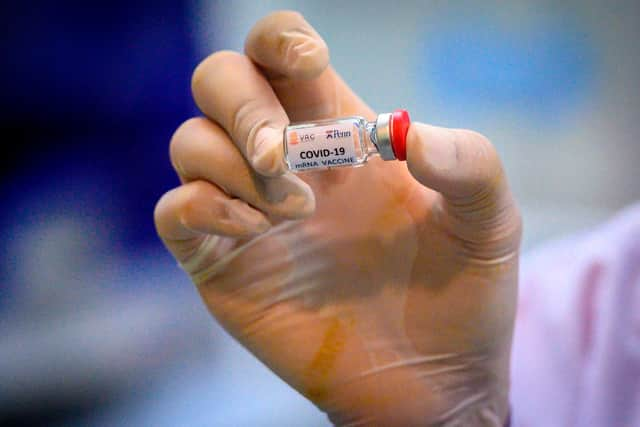Nurse reveals the ‘key challenge’ to vaccine rollout as programme begins in Sheffield
and live on Freeview channel 276
Sheffield Teaching Hospitals is one of the first trusts in the country to be given the vaccine, and will serve as on of the 53 ‘hubs’ that will store and distribute the doses to neighbouring hospitals.
The vaccine will be given to people in two doses, with a three week period in between each jab.
Advertisement
Hide AdAdvertisement
Hide AdThose who are vaccinated will receive some level of protection around 12 days after the first jab but the best protection comes a week after the second dose is delivered, officials have said.


However, getting people to return for a second dose of the Covid-19 vaccine could be a “key challenge” in the rollout, leading nurses have said.
Helen Donovan, professional lead for public health at the Royal College of Nursing, told BBC Breakfast: “Well, the key thing that we know from other vaccine programmes is actually making sure that people come back for that second dose and making sure that we factor that in with the appointments that people are given, because it’s a 21-day gap between the first dose and the second dose of the vaccine.
“So I think that’s the key challenge.”
She said that nursing staff will not only be helping the rollout of the programme, they will also be helping to encourage take up of the vaccine.
Advertisement
Hide AdAdvertisement
Hide Ad“Nursing staff have always been involved with vaccine delivery and probably deliver the majority of vaccines that we already give in the UK, so that will continue,” she said.
“Supporting people and encouraging people to take up the vaccine is as much part of actually giving the injections. All of those things will be really crucial.”
She added: “This gives us the light at the end of the tunnel almost, although we know that it’s going to be a long process.
“I think that ‘marathon not a sprint’ is absolutely right – it’s going to take many months for us to get the vaccine out to the people who need it and other vaccines will come on, so it is going to take time.”